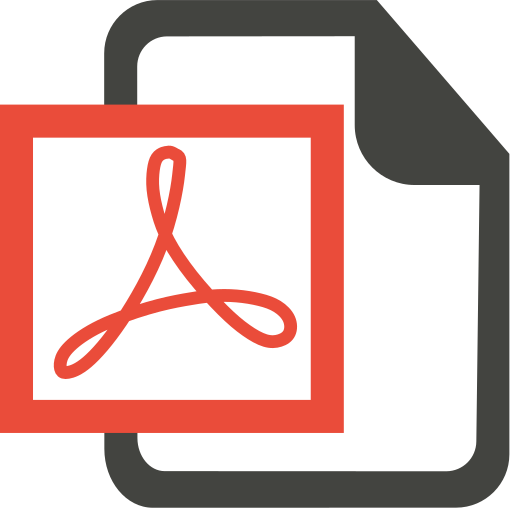Full Episode Audio
Listening Comp. Audio
Welcome to Lesson #4 of Stress Free German. Let’s jump right to our new image. Imagine a big field. In the distance is a house, and in the foreground a glass of water and a gift box. The box is wrapped with a ribbon and a bow. It makes for a surreal image to see a glass of water and a gift box just sitting out in a field. And since there’s a house in our picture, what does that tell us? Well, now we know that these four new words — field, glass, water and gift–are all neuter.
Feld Glas Wasser Geschenk
Let’s look at the first two. In English it’s a field, and in German Feld
Remember what I said about being flexible, in this case, with the vowel sound.
Field becomes Feld.
And glass becomes Glas. Again, it’s mostly the vowel. Listen again… Glas
Let’s put them into sentences. Ask: Where is the field?
Wo ist das Feld?
Say: This is his glass.
Das ist sein Glas.
And the other two words. Well, this is…(SFX)….Wasser
Again we need to be flexible. The ‘T’ of water is now an ‘S’ sound. Listen again? Wasser
And can you recall the final element in today’s image? Try to see it, just sitting out there in the field.
Wrapped with a ribbon…It was a …Geschenk
On Christmas eve, Santa took one last Geschenk from his sack and laid it under the tree.
Meanwhile, on her birthday, a girl sees a box wrapped in sparkly paper with a colorful ribbon. She picks it up and says…
Danke für das Geschenk, Mama.
So a Geschenk is a gift.
Let’s run through all four again. And as always, be sure to envision that surreal image we described.
field… glass… water… gift
Feld….Glas…Wasser…Geschenk
Say: This is my water.
Das ist mein Wasser.
Ask a friend: Where is your gift?
Wo ist dein Geschenk?
And segueing into review, ask a friend:
Where is your smartphone?
Wo ist dein Handy?
Try: The beer is big.
Das Bier ist groß.
How about: The refrigerator is big.
Der Kühlschrank ist groß.
Did you get Das Bier in the first one, and Der Kühlschrank in that last one?
Bier is neuter, but Kühlschrank is masculine
How about: The window is big.
Das Fenster ist groß.
Finally, ask: Where is the shelf?
Wo ist das Regal?
So how are you doing? Are you seeing the images in the pictures we envisioned, to confirm the gender? If you are, and you’re getting all these Ders and Dasses…you’re going to be such a good German speaker.
(music)
Alright, so straight to today’s main pattern. This one is huge. Remembering back to lesson 2, how would you say: I have a refrigerator. ….hit pause if you need to
Ich habe einen Kühlschrank.
Did you remember to change ein to einen? And why do we do that? Because (fist/palm) when we do something to a masculine noun, the supporting words change. They get that “en” ending. Hmm, I wonder if that happens to neuter nouns, too. Let’s try the phrase…
I have a house.
Ich habe ein Haus.
No. She only said “ein.” She only said ein. Guys, this is a huge bit of insight into the language right here. The words which support and describe neuter nouns do NOT change when we do something to them. Let’s try it again, this time working with “your.” For ex:
Is this your dog?
Ist das dein Hund?
I see your dog.
Ich sehe deinen Hund.
Hund is masculine, and so dein changes to deinen. Again, this was the main takeaway of Lesson #2. But now let’s try that with the neuter word smartphone. Listen…
Is this your smartphone?
Ist das dein Handy?
I see your smartphone.
Ich sehe dein Handy.
That word dein didn’t change. Why not? Because only the words which support and describe masculine nouns change when you (fist/hand) do something to them.
Take a moment, hit pause, and run through the four masculine nouns from our park picture from Lesson 1. For each item, say: I see a ______ .
Ich sehe einen Park.
Ich sehe einen Mann.
Ich sehe einen Hund.
Ich sehe einen Baum.
Now run through the first five neuter nouns we learned, using that same construction. So hit pause and say: I see a window….and so on.
Ich sehe ein Fenster.
Ich sehe ein Bier.
Ich sehe ein Handy.
Ich sehe ein Regal.
Ich sehe ein Haus.
Here’s why this system is so cool. Because the fact that “ein” or “mein” or “dein” are not changing, tells us that the word is neuter. It’s not trying to be complicated. It’s set up to help us learn the gender. Granted, with our system of using images to group nouns by gender we won’t have an issue anyway. But still, the way German grammar works, it is constantly reinforcing the gender, sentence after sentence, to remind and reinforce. It’s really clever.
Let’s try bouncing back and forth between masculine and neuter. Ready?
I want your dog.
Ich will deinen Hund.
I want your beer.
Ich will dein Bier.
I have his apple.
Ich habe seinen Apfel.
I have his smartphone.
Ich habe sein Handy.
I see my table.
Ich sehe meinen Tisch.
I see my window.
Ich sehe mein Fenster.
Excellent!
TIP OF THE DAY
One of the most common concerns that adult language learners have is about their pronunciation. Oh, I’m so worried I have an accent. The truth is, you most likely have an accent when you speak German. I certainly do. But so what? Every German speaker I’ve ever interacted with speaks English with a German accent as thick bratwurst. Doesn’t bother me. It’s doesn’t hinder their ability to communicate. And that’s the bottom line: Does a native speaker understand you?
As for how to check that…Well, you can try to find a native speaking practice partner. There are plenty of websites for that. But also, in a pinch you can use something like Google translate. Have it listen to your German and see if it types out what you’re trying to say. It’s not perfect, but better than nothing.
So don’t worry about having an accent. There are millions of immigrants in Germany, Austria, and Switzerland. They come from everywhere from Syria to Syracuse. German speakers, especially in the big cities, are very used to hearing and making sense of a broad range of non-German accents. You just want to make sure you’re saying things close enough so that you are understood.
(music)
Next, let’s learn a new verb. Imagine you’re sitting in your living room reading a book. Suddenly your roommate comes in. He pulls open drawers, looks for a moment, slams them shut. He lifts the cushions on the couch. Bends down, glances under the coffee table. Dude, what’re you looking for? And being German he says…
Ich suche mein Handy.
The first letter of this word suche is an S, but it sounds much closer to an English Z, doesn’t it?
Suche.
Let’s try it again. Remember our picture from Lesson #1? Imagine the man calling out for Fido. “Here boy!” He explains: I’m looking for my dog.
Ich suche meinen Hund.
Did you say…meinen? Because looking for the dog, a masculine noun, counts as doing something to it.
Imagine it’s your newphew’s birthday. You and your brother bought the kid a gift but now you can’t find it. Say…
I’m searching for his gift.
Ich suche sein Geschenk.
Where is my glass.
Wo ist mein Glas?
Tell him: I have your glass.
Ich habe dein Glas.
Imagine your friend has a huge kitchen, and the refrigerator is one of those that’s designed to look like the cabinetry. Say: I’m looking for your refrigerator.
Ich suche deinen Kühlschrank.
Let’s switch roles for a second. Imagine a classmate asks you, “Hey, why is it dein in one sentence and then in the next it’s deinen?”
What do you tell him? Hit pause and say the explanation out loud.
(swell)
I’d tell him: Glas is neuter, and the supporting words for neuter nouns–words like a, the, my, your– they aren’t affected when you do something to them. But Kühlschrank is masculine, and their supporting words change when acted upon. And so dein becomes deinen.
And remember what I said earlier: This system helps reinforce, over and over, the gender of each noun. It’s so clever.
Check it out. In these next phrases, tell me if the noun–which I’m assuming will be unfamiliar to you–is masculine, neuter…or can’t tell.
Das ist mein Tacker.
We only know that it’s either masculine or neuter. Maybe another phrase will clarify…
Ich suche meinen Tacker.
meinen…Okay, now we know. Masculine.
Ich sehe ein Schwert
Neuter. We’re doing something to the noun, but ein remained unchanged.
Ich habe deinen Dosenöffner.
Masculine.
Next…
Wo ist mein Spatel?
Masculine or neuter. Not sure.
But now…
Ich suche meinen Spatel.
Now we know. Doing something to it gave us meinen. So it’s a masculine noun.
As we near the end of Lesson 4, I imagine some of you are wondering, Man, when are we going to get to other things? When do we cover verb conjugations? When do we learn to ask directions or order food in a cafe? We’re getting to all that, of course. But for a little while longer we’re going to stick with this very analytical approach. Because if you take this little extra time up front to see how gender functions in German, everything else will lock in so much more solidly down the road.
Speaking of the road, it’s almost time to go. But let’s head out on a final review.
Where is the park?
Wo ist der Park?
I’m looking for the park.
Ich suche den Park.
masculine, so der changed to den
Where is the field?
Wo ist das Feld?
I’m looking for the field.
Ich suche das Feld.
neuter…no changes
I see the man.
Ich sehe den Mann.
I see the house.
Ich sehe das Haus.
I have your orange juice.
Ich habe deinen Orangensaft.
I have your water.
Ich habe dein Wasser.
I want my apple.
Ich will meinen Apfel.
I want my glass.
Ich will mein Glas.
I’m looking for a refrigerator.
Ich suche einen Kühlschrank.
I’m looking for a gift.
Ich suche ein Geschenk.
Great job as always. See you in Lesson 5. Get ready…finally…for feminine nouns.
Lesson PDF Download – Right click on PDF Icon – Save Link As…


We love these lessons, it has given us a great understanding of German.
Thanks, Dave. Hope to welcome you to Volume II!
I’m enjoying the approach so far and I have a suggestion that the posts get listed from top to bottom by the most recent to the earliest posts. When I first saw the posts at the top and their associated dates, it gave me pause thinking the last time someone posted was over a year ago and made rethink if I wanted to continue with a program that hasn’t had a post for over a year.
Hi Dan, Glad you are enjoying the lessons and thanks for the heads-up. Switching the post order will kind of mess up the layout of the site, so will likely just remove the date from the line where it is currently.
I agree with Edith. I have bought books and heard podcasts before but this method is putting things in my brain in an organised way. Before I was totally stressed!!
So glad to hear it, Hilary. Hopefully we’ll see you in Volumes II through VI!
I’m enjoying the lessons so much. It the technique requires much attention but totally enjoyable. I’m definitely hooked!
Glad to hear it. Hope to welcome you to Volumes II through VI! 🙂
Like it
Glad.